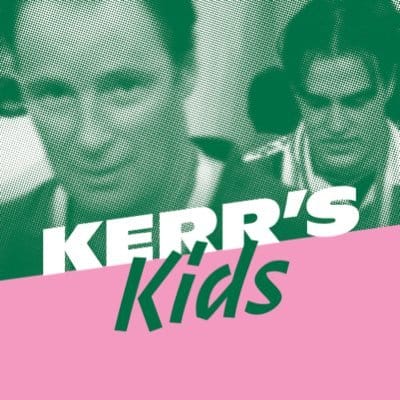What’s the best way to tell area residents about plans for a new asylum shelter nearby?
The government should tell communities directly about plans for new asylum shelters, some activists and politicians say.
“I thought the documentary was worth making because nobody else had done it,” says writer and director Kevin Brannigan.

It’s more than 20 years since the summer of 1998, when two Irish underage sides decamped to different corners of Europe for European Championships.
In Scotland, the under-16 national side, with soon-to-be heavyweights of the national side in John O’Shea, Andy Reid and the sadly recently deceased Liam Miller, beat Italy 2-1 in the their final.
Weeks later, on Cyprus, the under-18 national side beat Germany in a nerve-wracking penalty shootout, after Germany’s last-minute equalizer in normal time.
It was the first time a national underage side did the European double in the same year. It heralded the arrival of a golden generation in Irish football.
Now the man who masterminded the whole situation is being celebrated on screen by writer and director Kevin Brannigan and producer Gary Lennon.
Kerr’s Kids is a documentary funded by the Broadcasting Authority of Ireland that examines the legacy of Brian Kerr, and what Brannigan calls the “golden generation” of Irish football.
“I thought the documentary was worth making because nobody else had done it,” says Brannigan.
It tells the story of Brian Kerr and his shock decision to leave his position as manager of St Patrick’s Athletic in 1996 after nearly ten years at the Inchicore club to take the position of technical director with the Football Association of Ireland.
In his new role, he took control of the Irish youth sides from U16 to U20, qualifying for five international competitions in his seven years as director.
The documentary focuses on the period between 1997, when the U20 Irish team qualified for the World Youth Championships in Malaysia and surprising everyone by coming third, to the 1999 World Youth Championships in Nigeria.

It’s not just that the Irish youth teams were so successful under the stewardship of Brian Kerr and the late Noel O’Reilly, but that so many of the players involved in them went on to have such illustrious professional careers, says Brannigan.
It was important, he says, to commemorate the successes of this period in Irish football, especially because in some regards they were so surprising.
Brannigan takes the background of Robbie Keane as a case in point. “He was basically playing in fields, no one is coaching him properly, getting lifts in the back of the van and by the time he’s not even 21, he’s playing for Inter Milan,” says Brannigan.
Other players appear in the documentary who weren’t as fortunate as the likes of Damien Duff, Robbie Keane and John O’Shea.
Some ended up down different paths, ones that didn’t lead to the Premier League glories that seemed to beckon in their early careers.
Liam George, scorer of the final penalty to beat Germany in the 1998 under-18 final, was one of the most promising players to come out of that team, says Brannigan. But he struggled with injuries and played for more than 20 clubs before retraining to become a physiotherapist in Luton.
While not all the players went on to great success in football, Brannigan says he feels it’s vital to commemorate all their roles in achieving what were the only two national football trophies Ireland has ever won, something that he feels is being sidelined within official FAI celebrations.
“There was no official commemorations by the FAI,” says Brannigan. “They should have been brought out at one of the international games or whatever.”
Instead, it was up to Kerr himself, with the help of Damien Duff to organise a get together for the players.
“They all seemed completely mesmerised by Brian and Noel,” says Brannigan. “All of them used the word ‘father figure’ to describe Brian and Noel.”
There might have been very talented pool of players around at the time, “but their talent was nurtured in the right way”, says Richie Sadlier, RTÉ football pundit and goal-scorer in the third-place playoff in the 1997 under-18 championship team.
In the documentary, there’s an anecdote about how, after losing to England in the group stages of the 1998 European Championship, Kerr encouraged the players to take the night off.
The team went down to the swimming pool outside the hotel and, with the permission of Kerr and O’Reilly, were allowed to have a beer or two. Upstairs, the England team had a curfew and had to sleep to the sounds of a jubilant Irish team.
The Irish team went on to win the European Championship. Sadlier puts their success down to “culture that Brian created at the time”.
Their trip away on these European Championship finals was like their Gaeltacht, says Brannigan, contrasting the freedom the players had there to their home clubs in England.
All the players were in their late teens and living in England, away from home where there still remained a “harsh, horrible, British-army-type environment” with older players playing cruel tricks on younger players for the supposed purposes of character-building.
“Then they leave that environment and they’re all playing international football and they just have Brian, like being harsh but also like being completely sound.”
This culture of nourishing their confidence set so many of these players on the road to success, says Brannigan.
For Sadlier, documentaries like Kerr’s Kids serve as a timely reminder that Irish footballing standards can “be very high if the right people are in place”.
A screening of Kerr’s Kids is scheduled for the Sugar Club on Monday, 12 November at 7:30pm, and is due to air on Eir Sport TV later in the month.